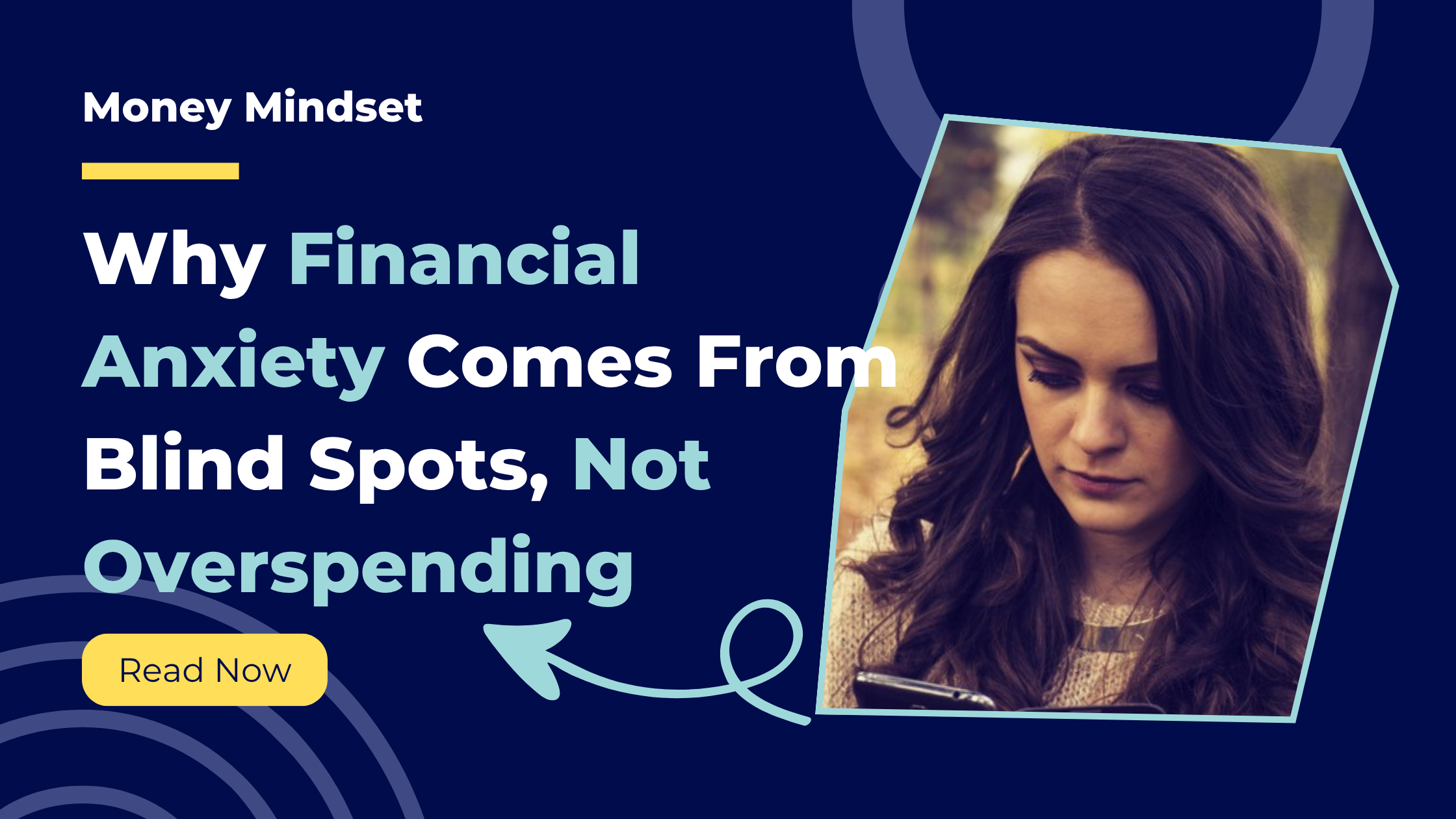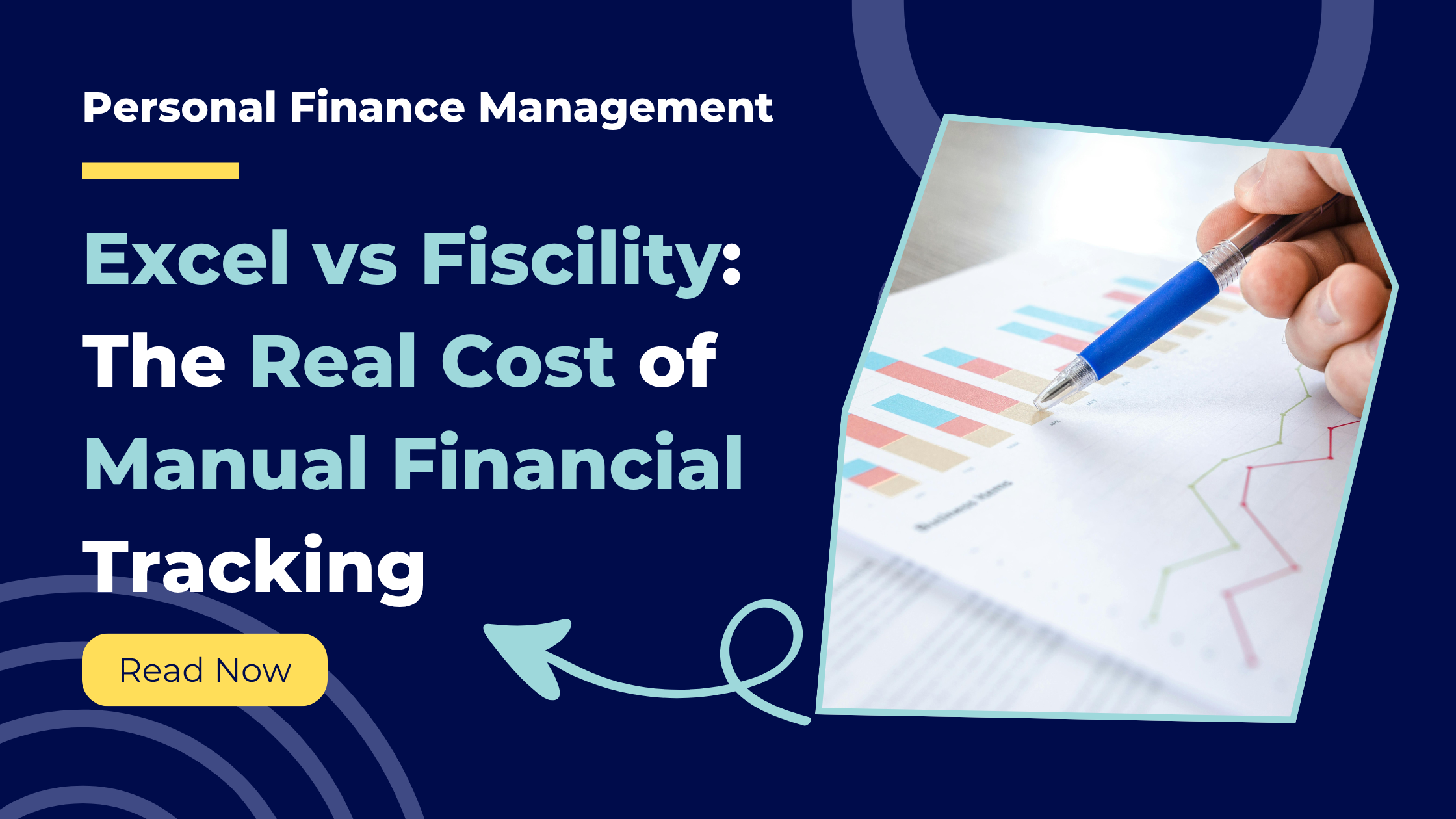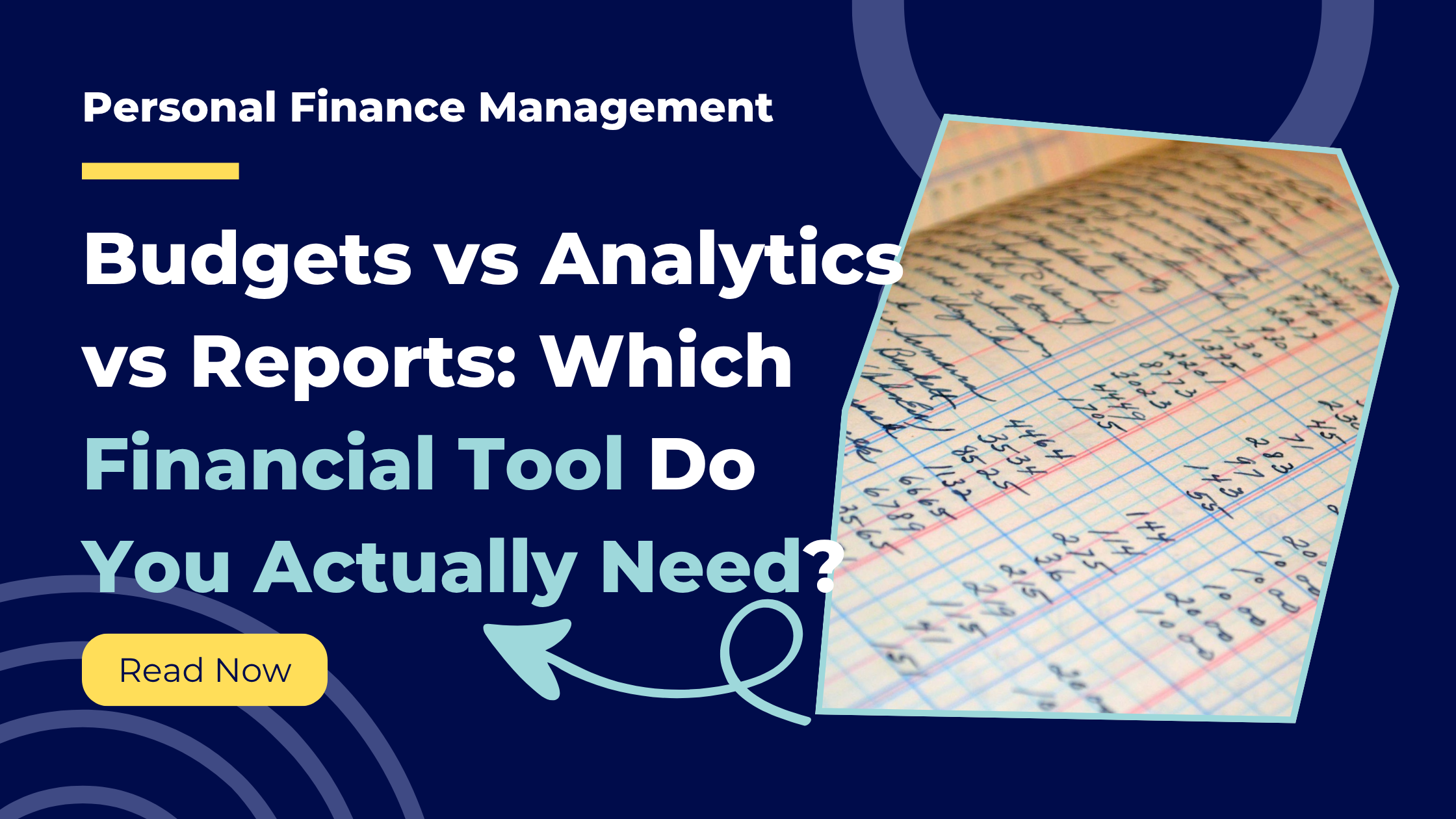
•
1 min read
Why Financial Anxiety Comes From Blind Spots, Not Overspending
Financial stress isn't about how much you spend—it's about not knowing where you stand. Discover how visibility eliminates anxiety.
TL;DR
The next time you feel that familiar tension before a purchase—that "Can I afford this?" uncertainty—recognise it for what it is: not a warning about your spending, but a signal about your visibility.
You're standing at the checkout. The total appears: £47.80. Your hand hovers over your card while a familiar tension builds in your chest.
Can I afford this?
You think you can. You're pretty sure you can. But you're not certain—and that uncertainty creates a knot of anxiety that has nothing to do with whether £47.80 is objectively affordable.
This is the paradox of financial anxiety: it often has little correlation with actual financial health. People earning £80,000 experience the same stomach-churning uncertainty as those earning £30,000. Wealthy individuals lose sleep over money. People with healthy savings hesitate at ordinary purchases.
The common denominator isn't income or spending level. It's uncertainty. It's the blind spot.
Financial anxiety doesn't come from overspending—it comes from not knowing where you stand.
The Ostrich Effect: Why We Avoid the Numbers That Matter Most
The Psychology of Financial Avoidance
Behavioural economists have documented a curious phenomenon they call the ostrich effect—the tendency to avoid information that might cause psychological discomfort, even when that information is critical for decision-making.
In a landmark 2020 study published in the Journal of Economic Behavior & Organisation, researchers found that investors check their portfolios significantly less frequently during market downturns. When things might be bad, people actively avoid finding out how bad.
The same pattern appears in personal banking:
- People avoid checking their current account when they suspect they've overspent
- Credit card statements remain unopened during expensive months
- Banking apps get deleted during financially stressful periods
- Account notifications get muted when balances are low
This isn't laziness. It's a psychological defence mechanism against anticipated discomfort.
The Vicious Cycle of Uncertainty
Financial avoidance creates a self-reinforcing cycle that paradoxically increases the anxiety it's meant to escape:
Stage 1: Uncertainty triggers anxiety
"I don't know exactly how much I have left this month"
Stage 2: Anxiety triggers avoidance
"I'd rather not look—checking will just stress me out"
Stage 3: Avoidance increases uncertainty
"Now I really don't know where I stand"
Stage 4: Uncertainty compounds stress
"This feels completely overwhelming"
The result? Financial blind spots. Overdraft fees that could have been avoided. Declined transactions at embarrassing moments. Emergency transfers at 11pm. Reactive crisis management instead of calm, informed decisions.
The cruel irony is that the very behaviour meant to protect your mental health—avoiding your financial information—is precisely what amplifies financial stress.
The Neuroscience of Uncertainty
Why does financial uncertainty create such powerful anxiety?
Neuroscience research reveals that the brain's threat-detection system (the amygdala) responds more intensely to uncertain threats than to known dangers. Your brain finds it easier to process "I definitely cannot afford this" than "I have no idea if I can afford this."
This explains a counter-intuitive truth: knowing you're in a difficult financial position often feels less stressful than not knowing whether you're okay or not.
Uncertainty keeps your threat-detection system in a state of chronic activation. It's the financial equivalent of hearing a strange noise in your house at night but never checking what it was—your brain remains on high alert because it cannot resolve the ambiguity.
The solution isn't positive thinking or financial education. The solution is visibility.
The Memory Trap: Why Your Brain Can't Track Your Money
The Systematic Failure of Financial Memory
Here's an uncomfortable truth: you have no idea how much you actually spent last month.
This isn't an insult—it's documented psychology. Research from the Centre for Behavioural Economics at the London School of Economics demonstrates that people systematically underestimate their spending by 20-40% when asked to recall monthly expenses.
Your financial memory fails in predictable ways:
Recency Bias
You remember yesterday's £65 grocery shop clearly. The £62 shop from two weeks ago? Gone. Your brain prioritises recent information and discards older data, creating a distorted picture where your last few purchases feel representative of your overall spending pattern.
Small Transaction Invisibility
The £3.50 coffee. The £2.99 streaming subscription. The £8 meal deal. The £4 parking fee. Individually, these purchases barely register. Collectively, they represent hundreds of pounds monthly—but your conscious memory doesn't aggregate them.
Emotional Minimisation
Purchases made during emotional states (stress, celebration, boredom) get mentally downplayed after the fact. "It wasn't that much" becomes the default memory, regardless of actual amount.
Account Fragmentation
Most people have money distributed across multiple accounts: main current account, savings account, joint account, credit card. Maintaining an accurate mental model of total financial position across all these accounts is cognitively impossible for sustained periods.
Why This Isn't a Character Flaw
Your brain isn't defective—it's just not designed for this task.
Human memory evolved to remember faces, locations, survival information, and social relationships. It did not evolve to accurately track dozens of decimal-precise transactions across multiple digital accounts while simultaneously managing work, relationships, health, and everything else modern life demands.
Expecting your memory to handle financial tracking is like expecting your eyes to see ultraviolet light. The mechanism simply isn't built for that function.
This realisation is liberating: you don't need to "get better" at remembering your finances. You need systems that remember for you.
The Blind Spot Cascade: How Small Uncertainties Become Big Anxiety
The Compound Effect of Unknown Variables
Financial decisions don't exist in isolation—they cascade. Each uncertainty compounds the next, creating exponentially increasing complexity.
Consider a simple scenario:
Decision: Should I book this £120 theatre tickets?
Required Knowledge:
- Current account balance (but which accounts?)
- Upcoming direct debits (this week? this month?)
- Already-committed spending (did I promise to split that dinner bill?)
- Pending transactions (what have I spent but hasn't cleared yet?)
- Income timing (when's my next payday?)
- Existing plans (what else have I agreed to spend on?)
Without clear answers to these questions, even a straightforward purchase decision becomes an anxiety-inducing calculation riddled with unknowns.
Now multiply this uncertainty across every spending decision you make in a month. Every purchase requires the same mental gymnastics. Every transaction adds another variable to track. The cognitive load becomes exhausting.
Decision Paralysis and Decision Abandonment
When faced with too many unknowns, the brain adopts one of two unhelpful strategies:
Decision Paralysis
You avoid making purchases even when they're affordable and desired. The uncertainty feels so uncomfortable that saying "no" becomes the default, regardless of actual financial capacity. This leads to missed experiences, delayed needs, and a sense of deprivation that has no relationship to actual financial health.
Decision Abandonment
The opposite response: giving up on financial management entirely. If tracking feels impossible, why bother? This leads to reactive spending without consideration, which then creates the actual financial problems that the anxiety was anticipating.
Both responses stem from the same root cause: blind spots that make informed decisions impossible.
🧠 The Control Paradox: Why Looking Reduces Anxiety
The Psychological Safety of Knowing
Here's the transformative insight that breaks the avoidance cycle:
The act of looking at your financial position—even when the news isn't good—immediately reduces anxiety.
Why? Because it transforms an unknown threat into a known situation. Your brain can process known information. It can plan. It can adapt. It can make rational decisions.
What it cannot do effectively is operate under sustained uncertainty.
Studies on locus of control in financial wellbeing consistently demonstrate that people who feel they have control over their finances report:
- Lower financial stress (even when earning less than high-anxiety peers)
- Better sleep quality (financial uncertainty is a leading cause of insomnia)
- Higher life satisfaction (independent of absolute wealth levels)
- More intentional spending (rather than reactive or avoidant behaviours)
The critical discovery? Control doesn't come from having more money. Control comes from having clear information about the money you have.
Visibility as the Anxiety Antidote
When you can see your financial position clearly, several psychological shifts occur:
Uncertainty dissolves
The question changes from "Can I afford this?" (unknowable without data) to "I have £740 discretionary funds this week; yes, this £85 purchase fits comfortably" (clear decision).
Cognitive load decreases
Your brain stops running continuous background calculations trying to estimate your position. The mental energy previously consumed by financial uncertainty becomes available for other things.
Self-efficacy increases
Each time you make an informed financial decision and observe its impact, you build confidence in your ability to manage money. This positive feedback loop replaces the negative spiral of avoidance.
Emotional reactivity reduces
When financial information becomes routine rather than crisis-driven, it loses its emotional charge. Checking your balance becomes as neutral as checking the weather—just information, not a referendum on your worth or competence.
🚀 From Blind Spots to Clarity: The Fiscility Solution
Making Visibility Effortless
The psychological case for financial visibility is clear. The practical challenge is execution.
Manually checking multiple bank accounts daily is unsustainable. Logging in, navigating interfaces, mentally aggregating balances, remembering pending transactions, calculating available funds—this process requires 10-15 minutes of focused attention. Every. Single. Day.
Most people attempt this for a few days or weeks, then gradually abandon it as life gets busy. Not because they lack discipline, but because the friction is too high for sustained behaviour.
This is exactly why Fiscility exists.
Fiscility eliminates the friction that makes financial visibility unsustainable:
Automatic Account Aggregation
All your current accounts, savings accounts, and credit cards in one unified view. No manual logging in. No switching between banking apps. No mental arithmetic to calculate your total position.
Real-Time Synchronisation
Your financial data updates automatically, multiple times per day. You always see your current position—not yesterday's balance with today's spending as a mental estimate.
Contextual Intelligence
Fiscility doesn't just show you raw balances. It tells you what those balances mean: how much you can safely spend this week, how long your current funds will last at your typical burn rate, whether you're tracking above or below your monthly budget.
Daily Automated Reports
Every morning, you receive a clear summary of your financial position. No effort required. No logging in needed. Just open your email and instantly know where you stand.
The 30-Second Morning Ritual
Financial clarity doesn't require hours of spreadsheet management or complex budgeting systems. With Fiscility, it becomes a simple morning habit:
- Open daily report (arrives automatically in your inbox)
- Scan your position (5-second status check)
- Make informed decisions all day (zero additional effort)
That's it. 30 seconds to eliminate financial blind spots for the entire day.
The psychological impact is profound:
- No more anxiety-inducing uncertainty before purchases
- No more mental energy wasted on background financial calculations
- No more avoidance behaviours that compound stress
- No more reactive crisis management
Just calm, informed financial decisions based on clear information.
Key Takeaways: Visibility Beats Anxiety
Financial anxiety isn't about overspending
Most money-related stress stems from uncertainty, not from actual financial problems. People at all income levels experience the same blind-spot anxiety.
Avoidance makes things worse
The ostrich effect is real and counterproductive. Avoiding financial information when you suspect bad news creates a vicious cycle that amplifies the stress you're trying to escape.
Your memory cannot track your finances
This isn't a personal failing—human brains aren't designed to accurately remember dozens of transactions across multiple accounts. Expecting yourself to do this manually is setting yourself up for failure.
Control comes from visibility
The simple act of seeing your financial position clearly—even when it's not ideal—immediately reduces anxiety by transforming unknown threats into manageable situations.
Sustainable visibility requires automation
Manual financial tracking works for days or weeks but fails when life gets busy. Automated systems that remember for you are the only sustainable solution.
Closing Reflection
The next time you feel that familiar tension before a purchase—that "Can I afford this?" uncertainty—recognise it for what it is: not a warning about your spending, but a signal about your visibility.
Financial anxiety isn't fixed by spending less. It's fixed by knowing more.
Blind spots create stress. Clarity creates control. And with modern automation, clarity requires no effort at all.
Eliminate Your Financial Blind Spots
Fiscility delivers automated daily financial reports across all your accounts, transforming uncertainty into clarity without spreadsheets, manual tracking, or effort.
What you'll experience:
- Complete visibility across all accounts in one view
- Daily reports delivered automatically each morning
- Contextual intelligence showing exactly what you can safely spend
- Zero blind spots, zero anxiety, zero manual work
👉 Start your 7-day free trial and experience what financial clarity actually feels like.
Or explore our sample report to see how Fiscility eliminates financial blind spots.
Found this helpful? Share it with others!
Ready to take control of your finances?
Join Fiscility today and start your financial journey.
Apply for a Membership

